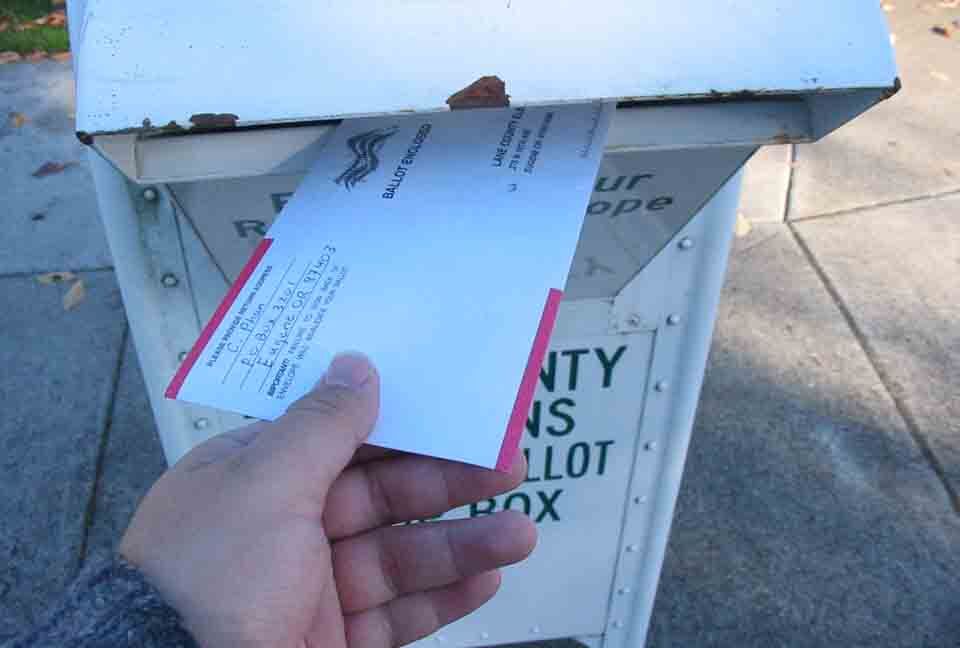Southern Oregon To Vote On Extra Taxes To Address Law Enforcement Funding Shortfall From Reduced Timber Income

Southern Oregon, a region traditionally reliant on timber sales to fund some municipal costs, is facing a difficult choice on a ballot this month. Proposals to fill the gap left by reduced timber sales- following an increase in environmental protections in forests, by raising taxes payable by residents across several counties have proved to be a hard sell.
See also: Federal Protection of Old Growth Forests in Oregon Extended
Counties are investigating ways to fund their budgets, particularly as law enforcement has been left with gaps due to budget restrictions.
Law Enforcement And Other Departments Facing Budget Challenges
Subsidies in 18 Southern Oregon counties from timber harvested on state and California Railroad land allowed the counties to keep taxes low. As logging was reduced in the forests in the ‘90s to protect the environment and endangered species the reduced income presented challenges to balancing the budgets in municipal accounts.
In Curry County, Sheriff John Ward spends a lot of time out of the office and personally goes out on calls when nobody else is available. He said the county doesn’t have enough deputies to patrol between 2 a.m. and 7 a.m. Other counties have similar problems.
Jay Trost, Curry County Commissioner Jay Trost confirmed that by the time a levy passed in Josephine, a lot of damage had been done, for example in Cave Junction, where authorities currently struggle against illegal marijuana operations. According to Trost, when the levy didn’t pass for Josephine County, the community had no more sheriff patrol. He said, “Essentially, that’s what we would be somewhat facing in our unincorporated spaces.”
Ward said that criminals have cottoned on to the times officers can’t patrol. He says criminals know when they’re on and when they’re off.
Proposed Tax Increases To Fund Law Enforcement In Southern Oregon
With the second-lowest property taxes in the state, Curry County used to rely on a steady stream of revenue from logging on federal land. Trost said the drop in timber revenue over decades has contributed to their budget woes and the county is only staying afloat through a federal American Rescue Plan grant, but this expires at the end of June.
On the ballot this month is a five-year property tax, of $2.23 per $1,000 of assessed value. The measure seeks to fund more deputies and patrols, and also jail services such as electronic monitoring. The county estimates it will cost the average taxpayer slightly more than $30 per month. But Trost says a levy has often been tried in Curry County but has never been successful.
Neighboring Josephine County renewed a levy to fund their sheriff’s office last year, but between 2012 and 2016, voters decided against new law enforcement property taxes on five ballots. This saw cuts in the sheriff’s office of two-thirds of its staff.
Coos County has proposed a measure on this month’s ballot to bolster law enforcement. Their five-year property levy adds a tax of $.98 per $1,000 of assessed value to add beds to the county’s overcrowded jail and fund more deputy district attorneys to address a backlog in cases. Gabe Fabrizio, Coos County Sheriff, said, “Like so many places we’re facing this massive financial cliff.”
Coos County often finds themselves in a situation where they have forced releases, but their budget restraints aren’t only about declining timber revenue. Fabrizio said personnel, materials, and vehicles have also increased.
In 2008 and 2022, a law enforcement levy in Coos County failed. Fabrizio is clear that there will be consequences if the levy doesn’t pass this time around. In the jails, they have expanded to 98 beds, but this will likely have to go back down to 49. and they could lose a whole patrol shift plus one of their detectives.
Chris Castleman, a candidate for commissioner in Coos County, said most residents confirm the crime problem but feel completely hopeless. He sees it as “almost a state of lawlessness.” Castleman is against the levy and would prefer to fund law enforcement fully by cutting from the budgets of other departments where necessary.
Finding a solution to balance the budget in the light of reducing timber revenue and increase in costs will be challenging across Southern Oregon.
